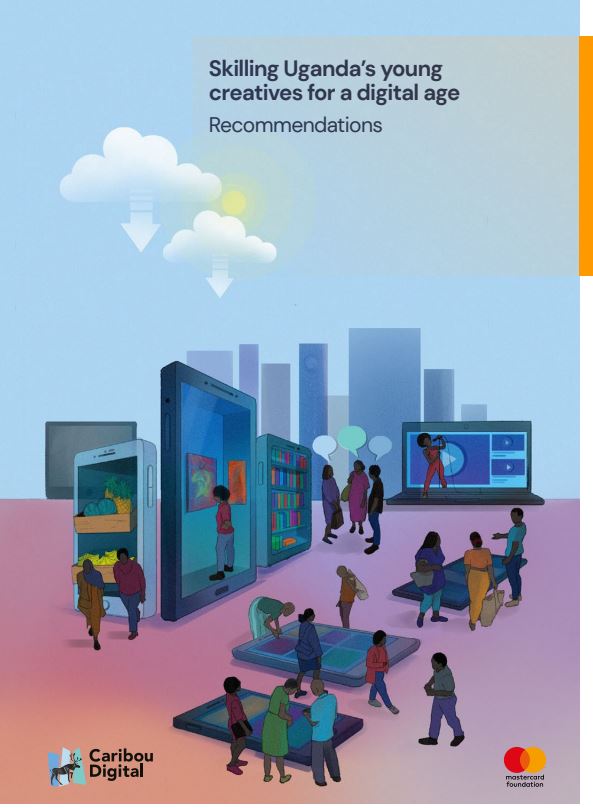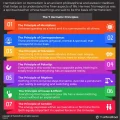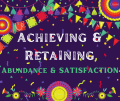
This report, the third in a series, offers recommendations for improving digital skills training among young creatives in Uganda’s culture and creative industries (CCIs). Based on research involving interviews with young creatives and industry experts, the recommendations emphasize the need for a more comprehensive and collaborative skills ecosystem. This includes increasing access to digital skills training, providing more spaces for practical application and peer-to-peer learning, and securing more funding for training initiatives. The report also highlights challenges faced by Ugandan creatives, such as limited access to resources and funding, outdated training models, and the need for locally relevant content. Finally, the authors suggest further research to address knowledge gaps within the sector.
Frequently Asked Questions About Skilling Uganda’s Young Creatives in the Digital Age
1. What are the main challenges faced by young creatives in Uganda’s culture and creative industries (CCIs) in the digital age?
Young creatives in Uganda face a multitude of challenges. While digital platforms offer new opportunities for reaching audiences and monetizing their work, they also bring pressures such as constant content creation and relentless audience criticism. Furthermore, there is a disconnect between formal education and the practical skills needed to thrive in a digital environment. Many creatives also struggle with limited access to resources, mentorship, and supportive spaces for collaboration and skill development. They often lack business acumen, management skills, and knowledge of intellectual property rights, which is compounded by inconsistent government support, restrictive laws, and income insecurity. For women in particular, there are additional gender-based discrimination challenges.
2. What digital and non-digital skills do Ugandan creatives need most?
Young creatives recognize the value of digital skills like digital marketing, graphic design, and platform-specific knowledge. However, they also express a need for more advanced digital skills, such as coding, understanding algorithms, and optimizing platform usage. Non-digital skills, including business and financial management, project management, intellectual property knowledge, and negotiation, are equally crucial for establishing sustainable careers. A holistic approach to skilling is needed that encompasses both technical and soft skills relevant to the entire creative process, from production to marketing and sales.
3. How can skilling initiatives better address the needs of young Ugandan creatives?
Current skilling initiatives often operate in isolation, with a lack of cohesion and collaboration. There is a need for a unified effort that includes formal education, experienced industry mentors, and peer-to-peer learning opportunities. These initiatives should move beyond theory to practical, locally contextualized training that is relevant to the Ugandan experience. They also need to acknowledge that content available online is often not tailored to the African context and be geared toward the practical, lived realities of Ugandan creatives. Access to physical spaces for practice, collaboration and peer learning is also essential. Finally, these initiatives must be financially accessible, as many creatives cannot afford training costs.
4. Why is the lack of physical spaces for creatives so detrimental, and what type of spaces are needed?
The lack of spaces for creatives to practice their craft hinders their development. Creatives need spaces such as art centers, galleries, studios, and theatres to refine their skills, collaborate, and experiment. These spaces facilitate peer learning, provide a sense of community, and offer opportunities to immerse oneself in creative projects. In addition, having work displayed or performed in public spaces is important for visibility and recognition.
5. What role does peer-to-peer learning and mentorship play in the skills development of creatives?
Peer-to-peer learning and mentorship are highly valued by young Ugandan creatives, who often feel that learning from peers with similar experiences and cultural contexts is more relevant than generalized or Western-centric content. They seek guidance from established Ugandan creatives who have achieved success, believing that mentors can provide more relevant and relatable advice. This is best achieved through masterclasses, regular meetings, and workshops facilitated both online and offline.
6. What are the roles of government, development partners, and industry actors in supporting skills development in Uganda’s CCIs?
Government support is critical, including allocated funding for skills development initiatives and the establishment of a dedicated ministry for CCIs. Development partners must offer flexible funding options that allow creatives and industry actors the freedom to be creative rather than focusing on rigid agendas. Industry actors, such as training providers, should collaborate with government, development partners, and educational institutions to create collaborative skilling initiatives that address current skills gaps. All must collect and update data on CCIs to better inform policy and action in the sector. All actors need to work to empower young female creatives specifically, given the challenges they face.
7. How can Uganda leverage digital platforms to support its creative sector?
Digital platforms offer numerous opportunities for Ugandan creatives to market their work, connect with audiences, and generate income. However, platforms themselves should invest in platform-led training to help users navigate constant changes, such as algorithms, search engine optimization, and ad programs. This will empower users of these platforms to become more adept digital producers. This training also provides transferable skills that can benefit users beyond just one platform.
8. How can Uganda ensure that the country’s CCIs and its creatives remain relevant and sustainable in the long-term?
To ensure long-term sustainability, there needs to be a collaborative approach that includes mapping skilling opportunities across the entire creative value chain. This involves identifying the strongest areas for skills provision and matching those with the needs of creatives. Investment in sector-specific research is also needed to address emerging technologies, assess earnings potential across different sectors, understand how to foster meaningful work, and support creatives with disabilities. Regular dialogue and collaboration through conferences and networking events will also foster partnerships between stakeholders. Additionally, there needs to be investment in domestic markets by launching national campaigns to encourage appreciation for and consumption of Ugandan creative content as well as considering recommendations by the African Union for CCIs.

- ed content and peer-to-peer learning so important to young creatives in Uganda?
- Why do skilling providers in Uganda need additional financial support?
- What specific roles should the government and private sector play in growing Uganda’s CCIs?
- What are some examples of data that needs to be collected and updated about Uganda’s CCIs?
- What are the key areas of focus in the African Union’s plan of action on CCIs that are relevant to Uganda?
Answer Key
- The primary research questions were: What are the benefits and challenges of digitalization that young creatives see? What skills do youth use and need as creatives in today’s digitalized age? And do available skilling opportunities address the needs of creatives in a digital age?
- Digital platforms provide avenues for young creatives to find customers online and promote their talents through social media. Additionally, digital platforms provide paid work opportunities for content creators and gamers.
- Young creatives face pressure to constantly produce new content and innovate and the need to monetize their work online, and seek support from family and friends can take a mental toll.
- Formal education prioritizes theory over practical skills and has not kept up with technological advancements in CCIs, resulting in a disconnect with the skills and knowledge creatives need to thrive in a digital age.
- Young creatives recommended more skills training, the creation of physical spaces for collaboration, peer-to-peer learning, mentoring, and more platform-led training opportunities.
- Localized content is crucial because online training materials are not always suited to the Ugandan context, while peer-to-peer learning offers relevant guidance from creatives who have succeeded in their craft.
- Skilling providers need financial support to cover operational costs, pay for training staff, buy equipment for hands-on training, and because many young creatives cannot afford to pay for training.
- The government should invest more in skills development and funding for the CCIs sector; the private sector should create a domestic market by increasing appreciation of Ugandan CCIs.
- There is a need for current data on how CCIs contribute to the Ugandan economy, how creatives are earning through digital platforms, and what training opportunities are available to creatives and what are their costs.
- Key areas in the African Union’s plan relevant to Uganda include markets for Africa’s cultural and creative industries; education, capacity building and sustainability; finance and investment; intellectual property rights; ICTs; cultural infrastructure; CCI statistics, and social inclusion.
Essay Questions
- Analyze the challenges faced by young creatives in Uganda in the digital age, and discuss how these challenges impact their ability to sustain a career in the creative sector.
- Evaluate the current skilling ecosystem for young creatives in Uganda, and suggest how various stakeholders can collaborate to make it more effective and accessible.
- Discuss the importance of both digital and non-digital skills for young creatives in Uganda, and outline a comprehensive skills training program that addresses these needs.
- Examine how both government and private sector stakeholders should prioritize investment in Ugandan CCIs, and the various ways those investments can promote sustainable growth and benefit creatives.
- Based on the findings and recommendations, assess the potential impact of emerging technologies like AI on Ugandan CCIs, and propose a strategy for creatives to navigate these impacts effectively.
Glossary of Key Terms
- Culture and Creative Industries (CCIs): Sectors of the economy that include arts, crafts, design, film, music, fashion, and other creative activities that have the potential for cultural and economic impact.
- Digital Platforms: Online spaces such as marketplaces, social media platforms, and messaging platforms where digital goods and services are exchanged, and various economic activities take place.
- Digital Skills: Abilities and knowledge to use technology effectively in creative work, such as digital marketing, graphic design, coding, and understanding algorithms.
- Skilling Ecosystem: A network of various stakeholders including training providers, development partners, government agencies, and mentors who collaborate to offer learning opportunities to individuals.
- Peer-to-peer Learning: A method of learning through interaction with peers or individuals at the same level, often those with practical experience or relatable skills.
- Platform-Led Training: Training initiatives provided by digital platforms to their users, designed to equip them with specific skills to improve their engagement and success on those platforms.
- Intellectual Property Rights: Legal rights granted to the creators of original works such as literary, artistic, and musical works, providing them control over how those works are used.
- Generative AI: Artificial intelligence systems that can generate new content such as text, images, or music based on learning from existing datasets.
- Creative Value Chain: The processes and steps involved in the creation, production, distribution, and consumption of creative goods and services, often involving ancillary functions like training and management.
- Transversal Skills: Skills applicable across various industries and job roles, which include communication, problem-solving, and critical thinking, also called “soft” skills.


















0 responses on "Skilling Uganda's Young Creatives for a Digital Age: Recommendations and Insights"